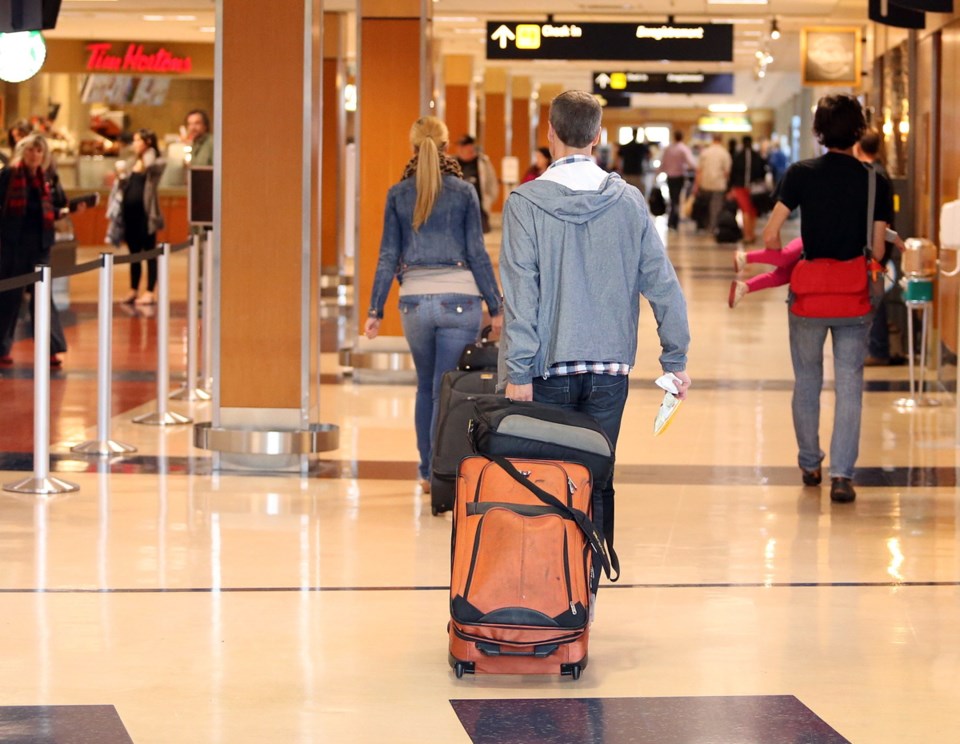Some Victoria residents are avoiding travel to the United States due to uncertainty surrounding President Donald Trump’s travel ban, reflecting a larger trend that could affect tourism to the U.S.
Naomi Salie and Michael Collins were planning to fly to Las Vegas for their annual spring-break trip, with a road trip around Joshua Tree National Park in California.
“As it was nearing election time and things were getting tumultuous down south we were already rethinking things,” Salie said. “And then post-election, I thought the political climate is so off-putting, I don't even want to be a part of it.”
Instead, the couple opted for a trip to Mexico.
Salie said she was shocked when she heard people were being detained and interrogated when trying to enter the U.S., even after Trump’s travel ban against seven Muslim-majority countries was suspended by the courts. “The way people are being treated is abhorrent,” she said.
Jennee Costanzo said her family was thinking of a trip to Hawaii in December. However, her father, a permanent Canadian resident with an Italian passport, has been questioned at the U.S. border in the past. They opted for Thailand or the Indonesian island of Bali.
Murray Gudmundson, a travel agent at TierOne Travel, said many clients are booking trips to Asia instead of the U.S., and are avoiding layovers in the U.S.
“People are definitely saying: ‘I don’t want to connect in the States,’ ” Gudmundson said. “People are choosing to avoid it and it’s going to hurt the U.S. economy.”
According to Montreal-based Hopper, a website that tracks flight searches and bookings, the number of travellers worldwide searching for deals to U.S. destinations declined in the week after the executive order on Jan. 27. Its research shows searches for flights to the U.S. between Jan. 26 and Feb. 1 from 122 countries dropped 17 per cent from the first three weeks in January.
Flight searches from Canada were down four per cent, Hopper says.
In the U.K., searches for flights to the U.S. have “fallen off a cliff,” according to travel website Kayak. Searches for flights to Florida’s Tampa and Orlando, for instance, were down 58 per cent, Fort Lauderdale was down 57 per cent and Miami was off 52 per cent compared with last year, Kayak says.
Allison Wallace, spokeswoman for Flight Centre Travel Group, said while some clients have opted to avoid the U.S., trips to the U.S. are actually up so far in 2017 from the same period last year.
Wallace said this could be because most people travelling up to March break had already booked their trip. “If we’re going to see an effect, we’ll likely see it in the summer months,” she said.
Gudmundson said some are avoiding travel in solidarity with those affected by the travel ban and others are shaken by stories of people having phones and social media accounts searched by border guards, he said.
U.S. Secretary of Homeland Security John Kelly has said that border guards could require foreign visitors to hand over their social media passwords before being allowed into the U.S.
Vincent Gogolek, executive director of the B.C. Freedom of Information and Privacy Association, said border guards have wide discretion to refuse entry to visitors without giving a reason.
“This is the problem when you give the people at the border huge arbitrary authority with no ability to check it,” he said. “Usually, you keep people out for reasons of criminality and national security. Now we’re moving into a time if you’re not supportive of the regime, we don’t let you in.”
It’s the “ultimate chilling of free speech” if people are censoring what they post on social media before travelling to the U.S., said Caily DiPuma of the B.C. Civil Liberties Association.



